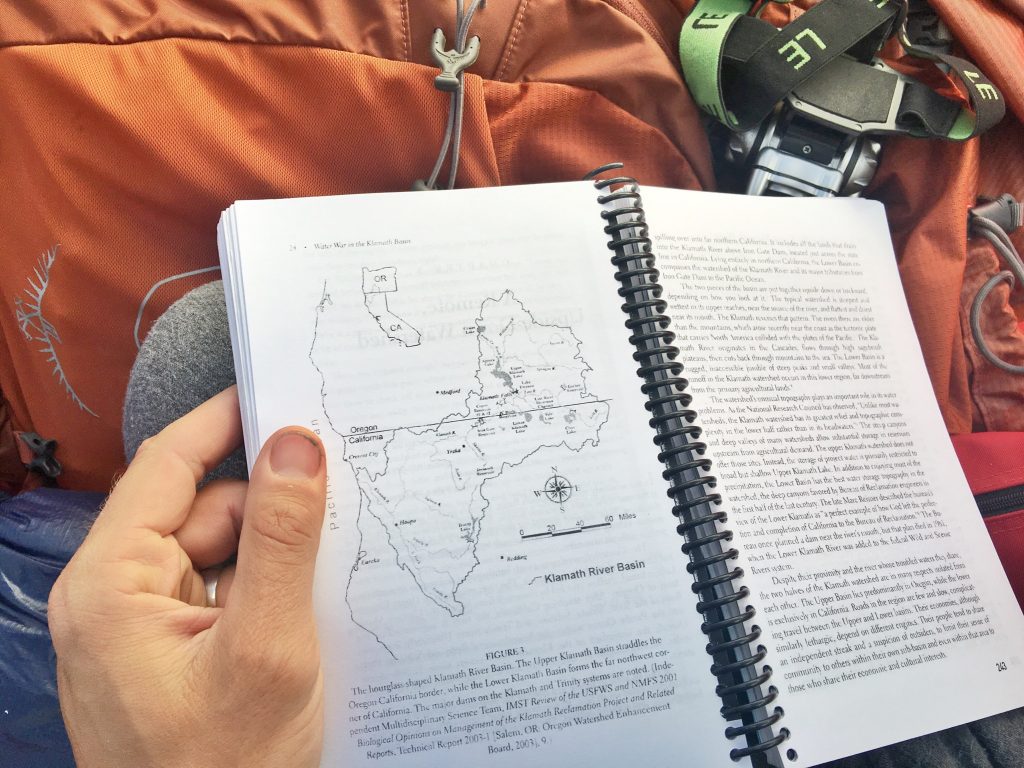The wind slowed us down. We could have blown over the ridge, turned to insects and given our lungs and legs mercy. In a parallel universe, we completed the five-mile uphill hike to Squaw Peak without difficulty and with extra time to lay in the sun and swim in the elusive lake. In our reality, an unexpected patch of snow blocked our path, obscured the trail and made navigating with backpacks too difficult. As the wind intensified and the sun set we were forced to set up camp some distance from our goal, as truth took hold–there would be no summer swimming in the days ahead.
We would later learn that we had misread the the topographic map, and that the area we believed to be at an altitude of 2000 feet was actually at 9000 feet–a difference substantial enough to make our labored breathing and my own dizziness make more sense in retrospect. It is June, after all, and by now the time for icy wind, ubiquitous patches of snow and need for four pairs of socks should have passed. But summer comes late to the mountains, and the Warner Mountains in a remote area of northern California are no exception. We scrambled to gather wood, get our tents up in the wind, and dig out all our layers of overpriced fast-drying synthetic fabrics.
The next morning the wind had completely subsided. I remembered a Modoc prayer I had learned the day before “How good I felt when the sun has shone on me and warmed me on a cold day. You are our great sun. Thank you for your care.” Birds were singing (probably not of electoral politics) while our guide Ryan fetched drinking water from the nearby creek and early-risers boiled water for coffee. The sun gave us comfort and we would stay a second night, day-hiking to find nearby overlooks and eventually the lakes, in all their still-snowy glory and ice crystal clarity. Beneath walls of orange pickle-shaped rocks, undead trees were splattered in wolfs moss, imported from some fantasy novel by a now missing portly director.
The three days of heightened awarenesses of thighs and calves in the Warner Mountains were part of a week-long trip exploring in southern Oregon and Northern California with a group of new friends via Signal Fire, a Portland-based artist/activist group. Our journey took us through rocky deserts, wetlands and river headwaters, as we stitched together a fraught mental fabric of pressures from farmers, fish and native peoples, symbolically reverse-retracing (“Unwalking”) segments of the historical route of John C Fremont in and around the Klamath river basin. Discussions focused on “continuing demand for indigenous sovereignty, as well as the contemporary legacies of development and resource extraction.” SignalFireArts.org
Grateful for some physically and intellectually challenging experiences, ideas for new projects and collaborations, and most of all some brilliant new friends.






